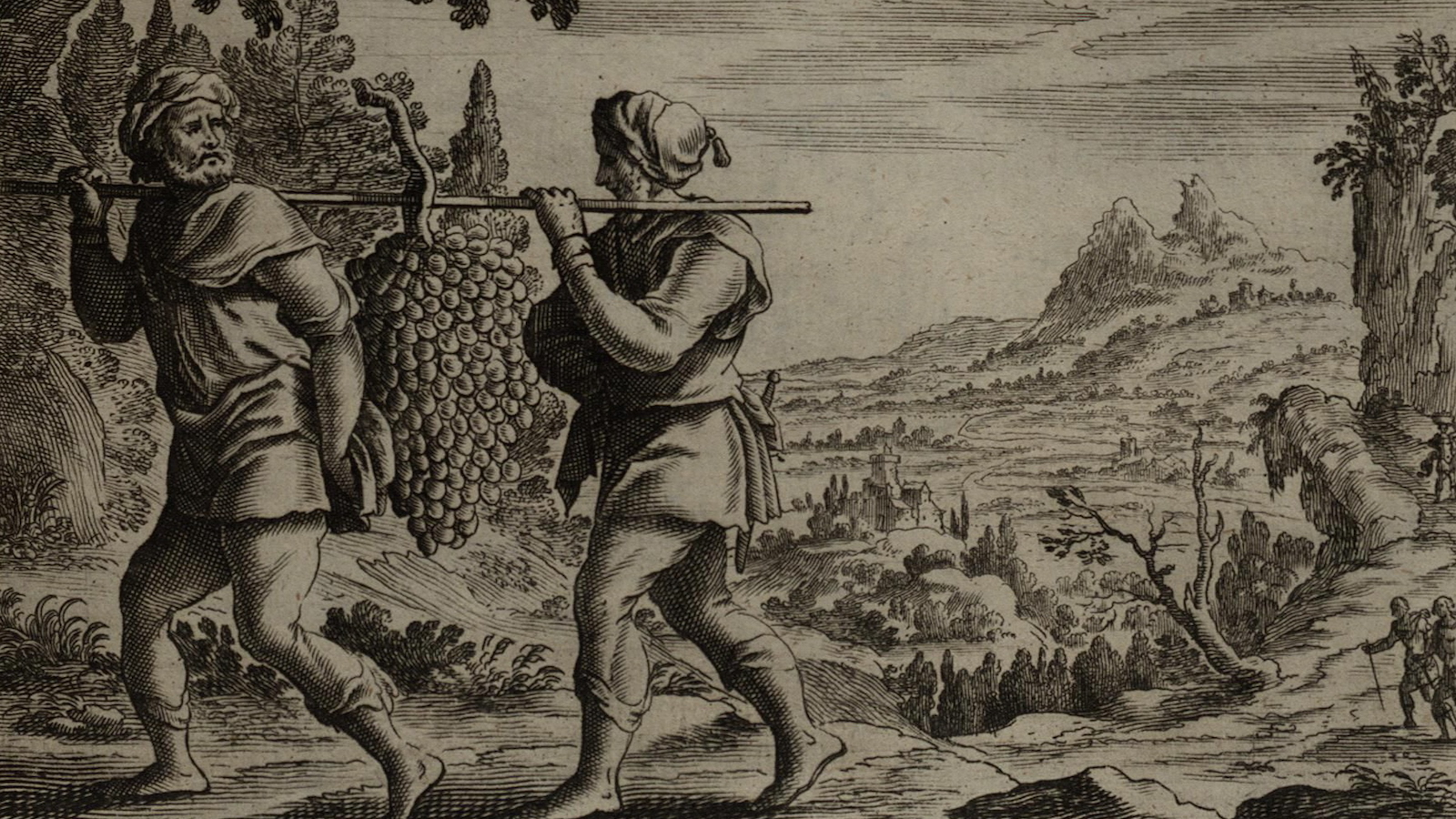Commentary on Parashat Sh'lach, Numbers 13:1-15:41
In Parashat Sh’lach, we are told the story of the spies who investigate the Land of Israel before the people enter and settle there. They return and report that though the land is bountiful, the people who dwell within it are strong, terrible, and cannot be overcome (Number 13:27-31). Despite the lone protests of Caleb, who insists that the Israelites can indeed possess the land, the people of Israel are paralyzed with fear, begin to weep and defame God, and then insist on returning to Egypt. It is this rebellion that is punished by 40 years of desert wandering.
Crisis of Faith
What we witness in the story of the spies is a profound failure of confidence and trust. Despite their dramatic exodus from Egypt and victories over enemies on the journey, the majority of the spies lack faith in their ability to conquer the land. Though they admit that the land itself is rich — flowing with milk and honey — they conclude (Numbers 13:28) “but the people are strong.”
Indeed, the word used here for “but” — efes (nothing) — actually indicates a negation of everything that has gone before. It is as if they are saying: “the land is bountiful, but that means nothing, for the people are too strong for us.” This transforms the way they see the land, describing it in their terror as (Numbers 13:32) “a land that consumes its inhabitants.”
They see themselves as powerless to confront the challenges that lie before them, telling the people that (Numbers 13:33) “we were in our own eyes as grasshoppers, and so we were in theirs.” What is striking about this statement is their projection of their own fear and lack of confidence onto the enemy. Because they felt as helpless as grasshoppers, they imagined that the inhabitants could surely see them as such.
With your help, My Jewish Learning can provide endless opportunities for learning, connection and discovery.
Even more devastating than their lack of faith in themselves is their lack of faith in God, implied in the Talmud. The Rabbis take the spies’ assessment of the enemy’s relative strength further by re-reading the pivotal verse, “they are stronger than us (mimenu)” as “they are stronger than Him (mimeno).” Changing the pronunciation of a single vowel suggests that the spies were actually claiming that the Canaanites were more powerful even than God (Sotah 35a).
The Power of the Individual
This profound lack of confidence is not foreign to us. Faced with overwhelming and seemingly intractable oppressive power, such as the might of China or the dictatorships in Sudan or Burma, the devastating impact of natural disasters, or even the insidious inequalities in our own country, we often feel helpless before forces and people beyond our control. Yet in so many small and large ways, our impact can be felt.
The power of every individual to impact a situation is implied in these verses, as the portion explicitly names every one of the spies who entered the land of Israel (Numbers 13:4-16). This naming suggests a focus on individual responsibility, an assertion that each person can make a profound difference, as Caleb and Moses do in defending the people before God after their rebellion.
The Zohar goes further, suggesting that acts of personal bravery and responsibility can empower not only ourselves but God. The Zohar looks at the words that Moses uses to plead on the people’s behalf. He says (Numbers 14:17): “may the power of God be great,” and appeals to God’s 13 attributes of Mercy (Numbers 14:18-20).
By invoking God’s amazing capacity for forgiveness — essentially stirring God to access these powerful attributes–Moses empowers God to forgive. We see that human acts of justice can help God recognize and enact God’s best self. Not only are we not powerless, but our power extends to bringing the Divine to action.
Yet this power is not a magic wand to achieve a better world. Neither Caleb nor Moses is able to win immediate entry for the people into the Land, but they transform a death sentence into a promise of deferred entry into the Land after 40 years of wandering.
Like Moses and Caleb, we make progress in fits and starts. By averting tragedy or making a situation bearable, we slowly heal the world and make it a better place. And this slow healing, this taking responsibility and doing what we are able, can have profound consequences.
Many of the problems we encounter in the world seem overwhelming, complicated, and insolvable. Often social conditions and structures of power seem too deeply entrenched to change, or too large to conquer, as they did to the spies. But on closer inspection, this story reveals merely a failure of vision and not a failure of ability.
Provided by special arrangement with American Jewish World Service. To learn more, visit www.ajws.org.
Zohar
Pronounced: ZOE-har, Origin: Aramaic, a Torah commentary and foundational text of Jewish mysticism.



